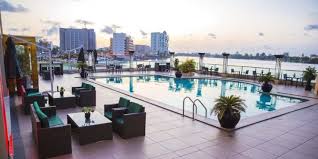Nigeria has emerged as the third most active country in Africa for hotel development, with 48 hotel projects and 7,320 rooms currently in the pipeline, according to the 2025 Hotel Chain Development Pipelines in Africa report published by W Hospitality Group.
This latest data places Nigeria behind only Egypt and Morocco among the top ten African nations with the largest number of branded hotel rooms under development.
Trevor Ward, Managing Director of W Hospitality Group, described the continent’s performance as “a really positive story,” highlighting that hotel chains signed 125 new deals in the past year, representing about 21,000 rooms—a 13.3% increase compared to the previous year.
Overall, the development pipeline across Africa now stands at 577 hotels and resorts with a combined 104,444 rooms. Nigeria alone accounts for about 7% of this total, with the top 10 countries (including Nigeria, Egypt, and Morocco) making up 77% of all rooms in the pipeline.
In terms of cities, Lagos was ranked second only to Cairo, Egypt, in the list of African cities with the most expected additions to hotel room supply. Abuja, Nigeria’s capital, ranked eighth.
The report described Lagos as a city composed of “various urban centres” with “distinct demand profiles,” yet gradually merging into one large economic zone. It noted that Marriott International is leading hotel development in Lagos, with eight hotels and 1,228 rooms planned. Accor is developing five, while Radisson Hotel Group and Wyndham Hotels & Resorts have three each. Hilton is developing two new hotels in the city.
In contrast, Abuja has 14 hotel projects in the pipeline, most of which are still in the pre-planning stage. Marriott leads development in Abuja with nine hotels, followed by Radisson with three. However, the report indicated that progress in Abuja is slower, and no hotel completions are expected in 2025.
Nigeria’s rise to third place, overtaking Morocco, is attributed to larger deal sizes and stronger brand commitments in recent months. While North Africa saw a 23% increase in hotel pipeline growth, Sub-Saharan Africa recorded a more modest 6%, with Nigeria remaining a key player alongside Ethiopia, Cape Verde, South Africa, and Kenya.
Ward explained that the demand for new hotel developments is being driven by rapid urbanisation and population growth across Africa. He cited a projection by the Global Cities Institute that by the year 2100, 10 of the world’s 16 largest cities will be in Africa, with all but one—Cairo—located in Sub-Saharan Africa.
“It is undeniable that those growing cities generate economic growth and hotel demand, and therefore opportunities for new development,” Ward said.
The report covered data from 50 international and regional hotel chains, representing 145 brands across 42 African countries. It also revealed that 59 hotels and resorts with approximately 9,500 rooms were completed in 2024, more than double the number delivered in 2023.
Looking ahead, the hotel chains aim to open 155 hotels in 2025, with projections that around 50% of the current pipeline could be completed by the end of 2026.
The growth in Nigeria’s hotel pipeline signals continued investor confidence in the country’s hospitality sector, particularly in commercial centres like Lagos, which remains a major hub for business tourism and international travel. Analysts believe that the trend could help boost employment, improve tourism infrastructure, and support the country’s broader economic diversification efforts.
